Veterans Define Random Acts of Kindness
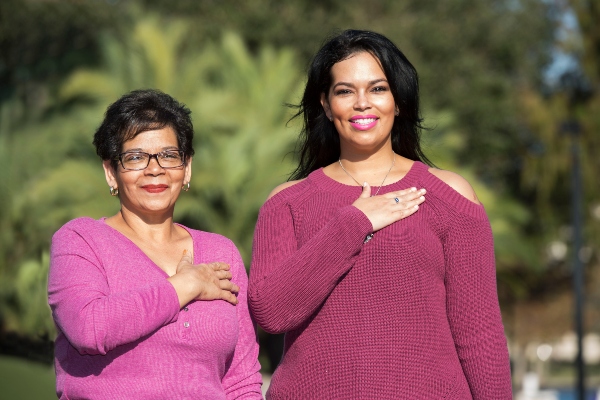
When you think of showing random acts of kindness to a veteran, the first thing that might occur is thanking them or calling them a hero. But that isn’t necessarily the most impactful way to show kindness — and in fact, it can sometimes have the opposite effect.
Wounded Warrior Project® (WWP) asked six veterans a few questions about how we can honor them and show them kindness.
If someone could do some random acts of kindness for you as a veteran, what would they be?
Sal Gonzalez: My favorite random act of kindness is paying for a veteran’s meal. Once, a man came up and asked me if I’d served (I was wearing a WWP shirt). He thanked me for my service, paid for his meal, and left. When it was my time to pay, I asked for my check and the waitress let me know he had paid for it. Since then, I’ve done it for a few folks whenever I had the extra money to spread around.
Bill Thomas: I don't mind people acknowledging my military service. But I begin to take offense when people who don't know me and my struggles with the aftermath of war begin to ask very pointed questions. As far as random acts of kindness, for me they would include acknowledgement, not asking personal questions, giving me space when I'm out in public, and supporting organizations like WWP that specifically target veterans’ needs.
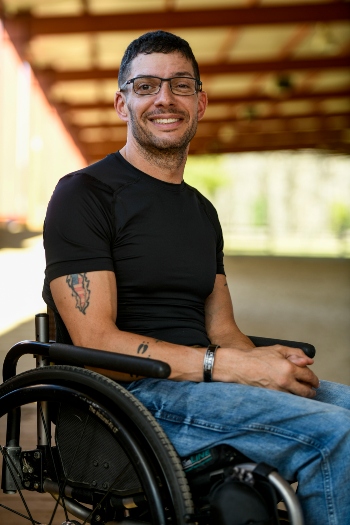
Mark Lalli: For my last Alive Day (anniversary of the day I almost died in service), my wife had a big sign put up in our front yard, and if we were outside, people who passed by would honk and wave. For Veterans Day, neighbors came by to drop off encouragement cards for veterans participating in equine therapy at a horse farm where I volunteer. Their kids gave me cards and the parents brought me a couple bottles of booze. Probably not the healthiest way of showing thanks, but the best one I’ve ever experienced because I felt it was the most genuine. Just saying “thank you” can seem like a platitude, so I would encourage more thoughtful acts of thanks. Being thoughtful feels much more like people want to know and listen to the warrior and their family. We all just want to be heard.
Brent Whitten: I would appreciate any acts of kindness. I cannot think of any that would specifically be important because I am veteran.
Lisa Crutch: If someone could show a random act of kindness to me as a veteran it would be to donate or continue to donate to WWP.
Yomari Cruz: If someone is willing to do a random act of kindness for me personally, I would say a donation to a nonprofit organization that helps veterans. If they do not know me personally and so they wouldn’t know how much WWP means to me, then something as small as a little note or card expressing how they feel, or an offer to have a cup of coffee and bond on anything military or a mutual hobby.
What are some acts people might think would be kind, but would actually have the opposite effect? Why are those things not kind, and how does it make you feel when those things happen?
Lisa: Thanking me for my service and calling me a hero just puts me in an awkward position. I’m not a hero. I was just doing my job. I believe that is one of the reasons why I distance myself from people.
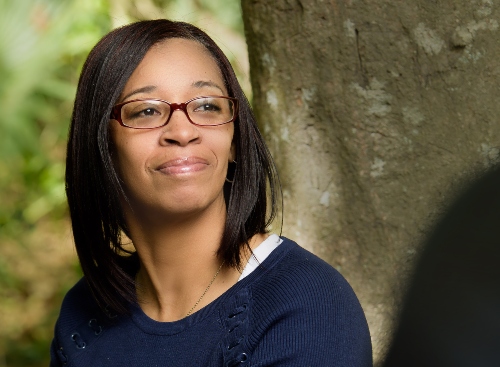
Sal: The only thing I dislike is when people call me a hero. Since retiring, it’s happened a few times, and I used to correct them and say “real heroes don’t come home,” but now I grin and bear it. It’s a little uncomfortable, but I know it comes from a good place. Also, don’t talk politics; I don’t care who you support, but the fact that you support me is enough.
Brent: I am not a huge fan when in a crowd, perhaps a concert or other event, when someone will ask for all veterans to stand up and for there to be applause. I appreciate the sentiment, but often I will not stand up. I do not need the extra attention in crowd settings, and it makes me feel awkward. That being said, I know some vets enjoy that, so to each their own.
Mark: Personally, I feel like people toss out the term “hero” like Mardi Gras beads. When we’re called heroes in the same sentence that an athlete is called a hero for doing something they get paid $1M+ for, it cheapens what we’ve done in our service. Too many veterans will take being called heroes (even when applicable) and milk it for free things. Even if deserved, and not solicited for, handouts seem empty and not genuine — unless it’s something more personal to the warrior and given more as a token of appreciation and not like Halloween candy.
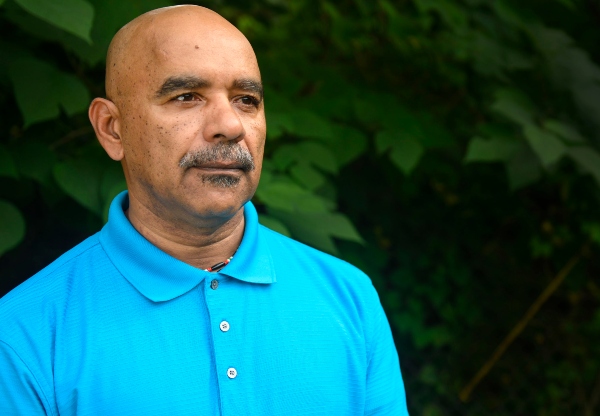
Bill: The thing that comes to mind is when people think and act with pity towards veterans. I take offense to such thoughts and deeds because we neither need nor solicit such things. It actually makes me angry. Also, the use of the word “hero.” My interpretation of hero is that of those who gave their lives in service to our country. I feel sad that people who have called me a hero don't realize that a lot of us lost friends either in the war or in the war at home because of dealing with things like PTSD.
Yomari: Usually thanking me for my service makes me a bit uncomfortable or calling me a hero because I know that although it took courage to join the military and go to war, I also know that a fellow brother or sister lost their life in combat and they are the ones that are truly my hero and our nation’s hero. But honestly it doesn’t happen very often because, as a female, people don’t recognize that I’m a veteran. It would be great if people would recognize that women also serve.
How would a person give a veteran a random act of kindness that would be well-received? What should people be aware of before trying to help or be kind?
Mark: We are an all-volunteer military, and I am proud to see many of us don’t stop serving, it’s just that we can’t wear uniforms anymore. Perhaps as a way to thank a warrior, people might consider donating to a cause the warrior is passionate about, or volunteer an afternoon, or a few dollars, or whatever, to help the warrior’s cause and help not only that warrior, but other warriors and family members — like with WWP.
Sal: Whether it be donating to an organization you wouldn’t normally donate to, paying for someone’s meal, or telling a veteran “thank you for your service,” the goal should be to brighten someone’s day and then move on with your own day. I have had people who thank me for my service and then want to hear my life story. I’m usually pretty happy to do that, but most veterans are not as open as I am.
Bill: I don't mind being thanked for my service. However, I don't like being fawned over regarding my service. I think people should try to first engage with the veteran and determine whether that veteran wants to engage with accepting acts of kindness from strangers.
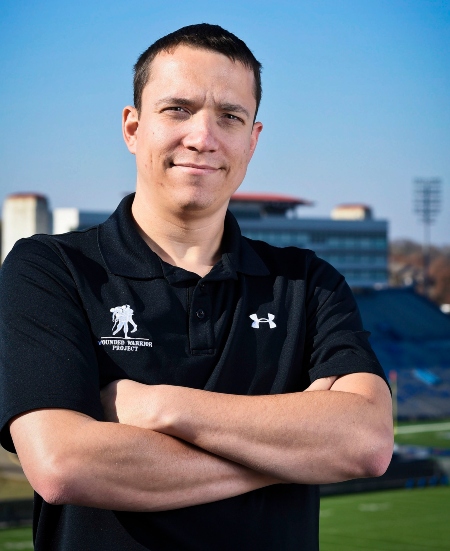
Brent: For disabled veterans, shoveling a driveway, raking leaves, or assisting in some physical task can be a big help. People should be aware of only helping if the help is approved. I could see a veteran getting upset if a crowd of people showed up in his or her yard unannounced.
Lisa: A person could show a veteran a random act of kindness with just a simple handshake and continue to donate to WWP.
Yomari: Each situation is going to be a little bit different, but for example, if you’re in a restaurant and you want to do a random act of kindness like pay for a meal, you can actually write a note and have the waitress deliver it to the veteran, or you could stop by the table and respectfully introduce yourself and make it short, since some veterans are introverts and feel uncomfortable being out in public to begin with. Also, never surprise a veteran because you don’t know what mental state they’re in and what triggers their mental disability. If a veteran is dealing with chronic PTSD and your intention is to surprise them, but you end up startling them, the outcome may not be in your favor. Respectfully approach them from a distance and briefly introduce yourself, and if you notice that the veteran starts opening up to you, then of course feel free to hang around and connect. This happened to me one time in a grocery store parking lot. A gentleman approached the vehicle, and I was in a very defensive mode, and when he noticed that, he told me he was a Vietnam veteran. He said he noticed my license plate and asked me what branch I served in, and a conversation kicked off from there. Once I knew he was a veteran and he started opening up about his experience, it helped me put my guard down, and he started sharing valuable information with me to help me during my transition.
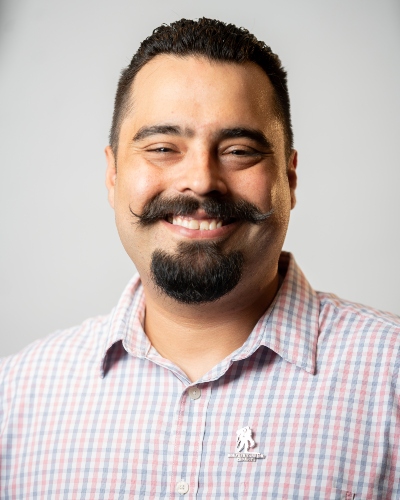
During Random Acts of Kindness Week or Day (Feb. 17), how can people honor veterans?
Sal: Say “thank you for your service,” pay for veteran’s meal, or donate to a veteran service organization like WWP.
Bill: By acknowledging their service to our country, helping those who are in need and ask for help, and by contributing to organizations that support veterans/active-duty members needs’ here and abroad. People who want to help should become familiar with the pressing needs of veterans in their communities and try to help when and where they can.
Mark: Get out and serve your community. Anything from picking up trash at a park, to serving in a kitchen feeding people, or any other ways of service to their community in the warrior’s honor could be a great way to honor veterans. Service is my thing.
Brent: It really depends on the veteran. Like any person, veterans are unique in the possible opportunities for kindness. I would recommend choosing a veteran you know and then choosing a kind act that you know they would appreciate.
Lisa: Things people should be aware of before trying to help or be kind is that we are human, and we have feelings. Very important to note that all wounds are not visible. Honor veterans by donating to WWP.
Yomari: Something as small as a flag in the front of your house or a sign by your mailbox. Or you can grab some white wash-off paint and write on your back window on your car. Or have a basket in your car and hand out anything with the American flag and anything that shows your gratitude — be it a little note on what the military means to you and your family or a simple saying such as “your courage and your brothers’/sisters’ courage has led to our freedom.” It’s a way of saying “thank you,” but it also encompasses not only the veteran but those who have lost their lives while serving. This actually happened to me: there was an older gentleman who served in Vietnam who had cut one sewn star from a flag and put it in a mini sandwich bag with a typed note on what his time in service meant to him and what coming in contact with me meant to him. I still have it five years later because it was that meaningful. Something so extremely strong left an impact.
And my last piece of advice is when you are about to approach someone and thank them in whatever form, also consider their significant other may have served as well. Don’t automatically assume based on appearance. As a female veteran, there are plenty of times when I have been given a military discount when I inquire about it, and the person automatically extends their hand to the male who’s with me thinking he is the one who served, when indeed it was me. There are always the societal challenges of understanding that there’s a difference between visible and invisible wounds, but there’s also a challenge when it comes to acknowledging female veterans. So always have an open mind and be willing to also extend a conversation with the female because not all females serve behind a desk and not all females are from one branch.
Contact: Rachel Bolles — Public Relations, rbolles@woundedwarriorproject.org, 904.760.2425
About Wounded Warrior Project
Since 2003, Wounded Warrior Project® (WWP) has been meeting the growing needs of warriors, their families, and caregivers — helping them achieve their highest ambition. Learn more.